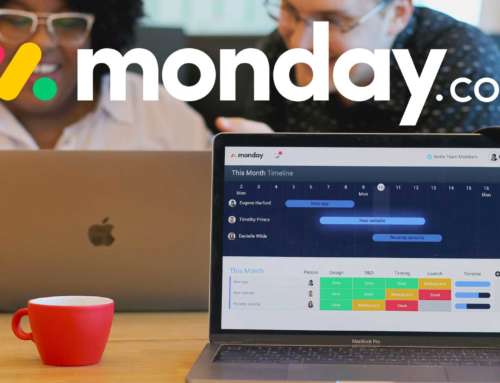
Most of the time the reply I get is @Gmail, @Yahoo, @Outlook or @Hotmail. This is a pity when a business has registered their own company domain. Let me tell you how to get the most out of having a domain name. First, what’s wrong about using the Internet Service Providers (ISP) given email address or a free email service like Gmail or Hotmail?
Most ISP’s such as; Xtra, 2Degrees, iHug, Snap, Vodafone offer a free email address as part of your Internet package. The problem with this is that it is tied to the ISP and if you move then you won’t have access to your email address and all email that is sent to it! They offer you free email addresses to lock you into using their Internet services.
Time to take control of your own email as the last thing you want is for an important email to go missing because you have found a better ISP to provide you Internet Access.
What is a Domain Name?
It is your own piece of Internet Real Estate one of the greatest reasons to have your own domain name is to protect your identity. A popular reason for buying a domain name is to register yourname.co.nz or yourcompanyname.co.nz, regardless of whether you intend to use it in the near future or not. This will stop others from taking the domain name you want. Domain names in the .nz space are registered on a first come first served basis.
Domain Names are host names that the Domain Name System (DNS) uses to identify and map to websites and other Internet Protocol (IP) resources. A good parallel would be to think of domain names as street names. Street names are important because they help people navigate. The IP addresses, on the other hand, are the geographical location of the streets themselves.
Domain names allow us to remember websites more easily than using an IP address. So, for example, instead of having to remember 192.168.1.146 to come to this website, instead you can simply remember dehek.com or danny.co.nz
The following example illustrates the difference between a URL (Uniform Resource Locator) and a Domain:
URL: https://www.dehek.com/ebook/
Domain: dehek.com
Before you rush out and purchase a domain name or multiple domain names, do read my article on Domain Names.
What is an Email Address?
An email address identifies an “email mailbox” to which email messages may be delivered. A better question is what is an “email mailbox”? It is the equivalent of a letter box in the postal system. These “email mailboxes” are NOT on your computer the are normally looked after by your Internet Service Provider or a free email provider, such as Gmail and Hotmail.
You could use any Internet Service Provider to get access to the Internet and use a Free “email mailbox” provider to store your email such as; Gmail, Yahoo, Outlook or Hotmail. In my opinion Gmail is the most respected email provider and it is part of Google so they know how to handle spam and scam mail the best, as they have a better overview of the Internet than anyone. You can also setup Gmail to check your Xtra, 2Degrees, iHug email accounts and filter out the spam.
Use your domain name as your business e-mail address
Why promote your ISP when you send and receive email when you could be promoting your business? You can be [email protected] rather than [email protected] or [email protected] giving you a more professional online presence.
Change your ISP without changing your e-mail address
If you change Internet Service Providers your customers will still be able to email you and you won’t need to reprint business cards and other stationery – simply update your e-mail forwarding settings and your mail will still get to you.
That means instead of having to change your email address every time you change your provider, you can keep one email address for life.
Make your domain name a customised email address
Email forwarding solution provides your business with a customised, easy to remember and professional looking e-mail address you can give to your customers. Email sent to [email protected] will be forwarded to any existing email address that you choose (such as your ISP account). However, when replying to an email you have received, it is a different matter. Some ISP or free email providers may let you can setup your email address so that email appears to come from your customised email address as well. This can be tricky to setup and may cost you a few dollars.
For example:
[email protected] forwards to [email protected]
[email protected] forwards to [email protected]
An email address is composed of a username and a domain name. In the example [email protected], danny is the username and dehek.com is the domain name.
One way to handle email is using Domain based E-mail routing, this is handled by the Domain Register company that manages your Domain. You should be able to login and setup a forwarding email address and forward the email to your Gmail account such as; [email protected]. This way you get to look professional and have the option to switch email providers at any point without losing any emails ever again.
Mail Forwarding shouldn’t cost you anything per month. However the down side is once you get an email in your inbox, when you hit reply it will display the ISP’s or Free email providers address. To be totally professional, for a few dollars per month get your own mailbox setup with Office365 or Gsuite. This is what I do now and the main difference is I can send and received emails with my own identity.
In conclusion, if you’re on a budget get your own domain name and use email forwarding. When your business is more lucrative set up your own mailbox with Office365 or Gsuite. In the long run you will save time and money on printing and updating your email addresses.
P.S. If you like this article, please click “like” or provide comment, as that will motivate me to publish more. Share and inspire. Thank you.







Leave A Comment